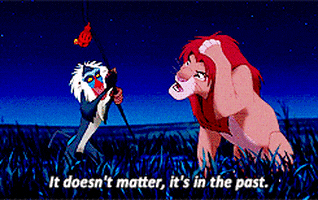Kicking the bottle is definitely one of the hardest things I've ever had to do.
This is gonna be kinda long so I apologize in advance but it sort of has to be.
I can't rightfully recommend how I did it to other people, because other people aren't me, but basically I had to switch to cannabis for a while, before later gradually weaning myself down, off and away from cannabis. Which is and was admittedly a lot easier to do than trying to do the same with drinking, as with cannabis, it's not physically addictive to the body.
And of course, thereafter I quit drinking, like with when I quit smoking cigarettes years ago, it took a couple years before the knee-jerk reactionary and compulsive cravings died off.
I can finally have a single once on a rare occasion drink without fully relapsing, and I really don't even smoke cannabis anymore, I'm mostly just sober.
Age partially helped me to sobriety.
Hangovers tend to really suck more when you're over your physical prime. You don't have to be too far over that timeframe to notice, either. I peaked at 26, and so I remember being 28/29 drinking and thinking "I gotta stop. This is actually really not good for me."
Knowing the science and chemistry behind alcohol helps, however.
Because it's a depressant, in excess it becomes cyclical.
You drink because you're stressed/anxious/depressed.
Alcohol is a depressant, so your drinking makes you more depressed.
For a period of time while trying to be sober again, alcohol and the effects of alcohol on the brain tend to linger around a bit, especially if you've had a drinking problem for a long enough time. This commonly gets called the "brain fog" section of trying to sober up. Because even though you're not drinking, it's still running its course through your brain and body effectively, sometimes lasting up to several days to a week, which is what lapses people through depression and causes the whole cycle to repeat. Because the brain fog itself is very...vapid, like stale and empty air, for a lack of a better way of trying to put it.
In the Medial Pre-Frontal Cortex of the brain, there is a place between the Left and Right sides called the Default Mode Network that connects to the Posterior Cingulate Cortex. The Default Mode Network is what is responsible for "mind wandering" and rumination, or the thoughts that you have when you are in between tasks or on downtime. Dr. Tracey Marks has a great video on this and how it works and ways to combat it which I will link below in order to shorten this post a bit:
This exactly describes my situation.
"For a period of time while trying to be sober again, alcohol and the effects of alcohol on the brain tend to linger around a bit, especially if you've had a drinking problem for a long enough time. This commonly gets called the "brain fog" section of trying to sober up. Because even though you're not drinking, it's still running its course through your brain and body effectively, sometimes lasting up to several days to a week, which is what lapses people through depression and causes the whole cycle to repeat. Because the brain fog itself is very...vapid, like stale and empty air, for a lack of a better way of trying to put it."
- I had gone most of the week without a drink, but yesterday I was in the office and almost no one was there.
Around 4 PM or so I started getting a very strong urge to drink. When I got off the train my biggest decision was whether to stop at the liquor store on the street, or go home and get my car so I could drive to the big liquor mart. I went to the liquor mart. Really wish I hadn't have done that.





























